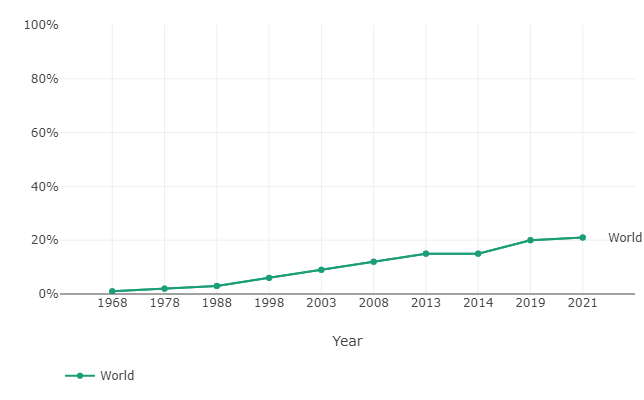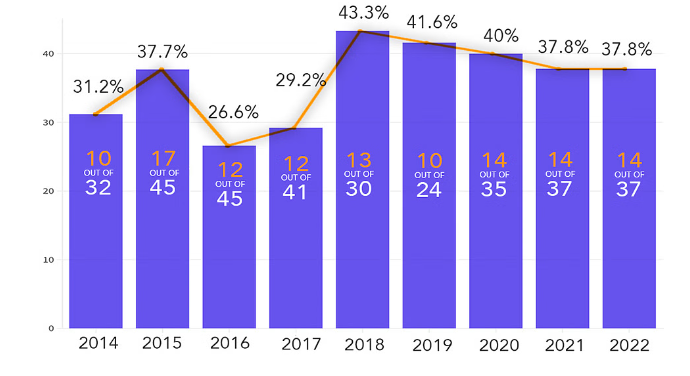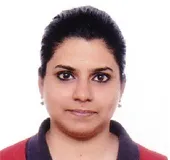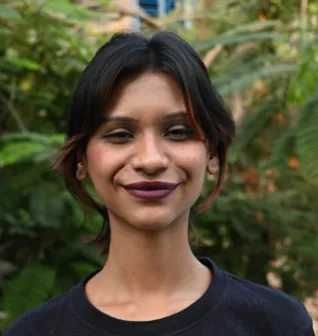.png)
Sustainable development and the promotion of gender equality have become a pivotal position in contemporary times. In fact, the expanding conversation on gender and increasing women’s participation in different spheres of life pertinently highlights one critical thing: sustainability cannot thrive without gender equality. A powerful synergy between the two is critical to ensure a reality marked by an equitable, inclusive, and prosperous future. Indeed, women’s presence in the field of diplomacy towards decision-making and shaping policy debates is crucial for building or implementing multilateral agendas. During the 76th session of the UN General Assembly held in 2022, the members collectively decided to celebrate 24 June every year as women in diplomacy day to recognise their efforts in reaffirming Agenda 2030. However, diplomacy has been historically and still remains a preserve of men.
Sustainable development and the promotion of gender equality have become a pivotal position in contemporary times.
Despite talks of increasing women’s participation in diplomacy, a mere 20.54 percent of ambassador positions were held by women in 2023 (Figure 1). Moreover, the share of women ambassadors in some regions, such as the Nordic is nearly half of its population (i.e., 42 percent in 2019); yet, other parts of the world trail behind (11 percent in Central Asia and 13 percent in Asia).
Figure 1: Global percentage of women ambassadors sent by all the countries (1968-2021)

Source: Birgitta Niklasson and Ann E. Towns, 2023, GenDip Dataset
For the Indian Foreign Service cadre, there has been a significant increase of 6.6 percent in female diplomats over a nine-year period from 2014 to 2022. For instance, in 2014 IFS cadre 31.2 percent were women (i.e., 10 out of 32); in 2022 this figure has risen to 37.8 percent (i.e., 14 out of 37). (Figure 2)
Figure 2: Percentage of female diplomats in IFS (2014-2022)

Source: ThePrint
Reforming the system for women in diplomacy
For India, looking at the larger picture, the representation of IFS is a meagre 800 for a country of 1.4 billion, out of which 14 women get the opportunity to break the glass ceiling. This is definitely not an encouraging picture. In fact, the art of diplomacy which involves conducting negotiations for conflict resolution, building collaborations, and partnerships between countries, and reinforcing developmental objectives for long-term goals are elements quite gender neutral in nature. In this sense, the need for discussing gender equality in diplomacy is itself quite incongruous. For diplomacy to succeed, it should abstain from concepts of hierarchy and hegemonism, and instead embrace diversity of all spheres.
Further, calls for ushering greater reforms to encourage women’s involvement in diplomacy are gaining ground–offering more positions to women in top services (be it international organisation or high-level ambassadorial appointments); not confining women diplomats to ‘soft’ portfolios like child welfare or gender issues but also for ‘hard’ portfolios like defence or security; giving access to leadership not only during times of crisis but more frequently; giving space for maintaining work-life balance; and breaking unequal hierarchies and gendered power relations within institutions are some of the key issues.
Calls for ushering greater reforms to encourage women’s involvement in diplomacy are gaining ground–offering more positions to women in top services
Reiterating the importance of viewing diplomacy from a gender-neutral lens is key yet there is a need to explicitly focus on women’s inclusion for the sake of the larger narrative. Amidst the evolving geopolitical landscape, nations are striving to redefine women's participation in diplomacy. In this sense, the adoption of a Feminist Foreign Policy (FFP) emerges as a pertinent strategy.
Adopting a Feminist Foreign Policy lens
FFP can be understood as a states’ practice to define its relationship with other actors, with gender being a principal consideration. This approach takes a bottom-up approach to rethinking traditional power structures, promoting inclusive and equitable decision-making power, as well as prioritising policy outcomes that benefit women, such as in development partnerships, trade agreements, and climate policies.
India does not have an FFP of its own, yet its commitment to gender equality has grown positively over time. With India’s G20 Presidency championing ‘women-led development’, viewing women not as mere recipients of aid but as active agents of change, seek to fuel positive development for women, domestically. Further internationally, India’s critical role in developmental partnerships significantly highlights gender as an important consideration.
India does not have an FFP of its own, yet its commitment to gender equality has grown positively over time.
Incorporating more women into diplomatic roles offer substantial advantages like enriching negotiations with diverse perspectives and experiences, fostering better decision-making providing a wider range of viewpoints and innovative solutions. Studies have also found women play a positive role in diplomatic dialogues towards peace, and resolving conflicts. Furthermore, women in diplomacy are found to have a domino effect, as they also become crucial advocates for gender equality.
Therefore, for India, using an FFP lens would be fruitful towards not just creating more opportunities for women in policymaking and diplomacy, but to also further its goal of achieving SDG 5.
After a remarkable stint at the G20 Presidency and the emergence as the voice of the Global South, India through the adoption of FFP lens, can lead by example in promoting inclusive diplomacy globally. Prioritising the inclusion of women in diplomacy will also enhance India's international outreach, strengthen its soft power, foster global partnerships, and drive economic growth, contributing to global peace and development.
Swati Prabhu is an Associate Fellow with the Centre for New Economic Diplomacy (CNED) at the Observer Research Foundation.
Sharon Sarah Thawaney is the Executive Assistant to the Director at the Observer Research Foundation, Kolkata.
The views expressed above belong to the author(s). ORF research and analyses now available on Telegram! Click here to access our curated content — blogs, longforms and interviews.



.png)
 PREV
PREV


.png)
.png)